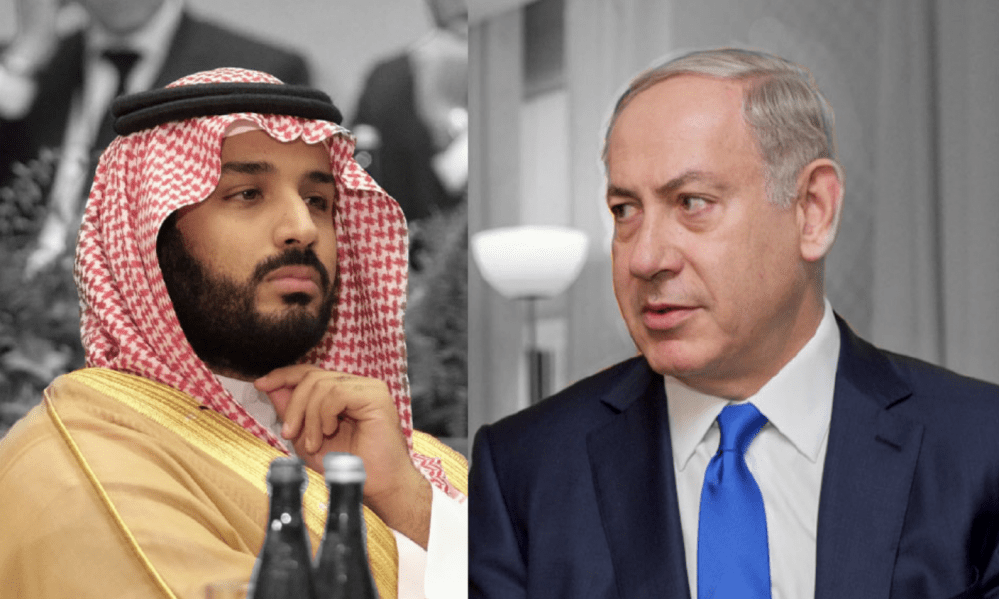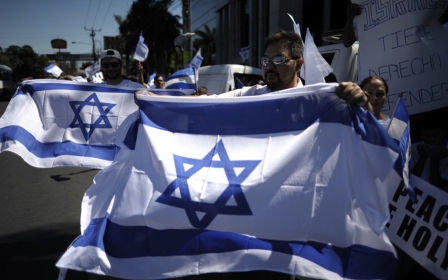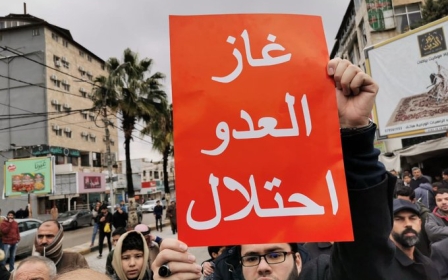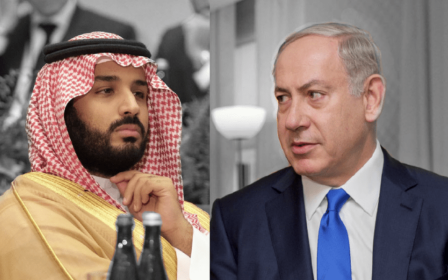Arabic Press Review: Israel, Arab states to meet ahead of Israeli election

Israel, Arab states to meet before Israeli elections
Arab and Gulf states are planning to hold a public Israeli-Arab meeting, with high-level representation, before the Israeli general elections on 2 March, London-based newspaper al-Araby al-Jadeed reported.
Citing an informed Egyptian source, the newspaper said Cairo and Abu Dhabi are playing a major coordination role in the meeting, which gives Israeli Prime Minister Benjamin Netanyahu great impetus to overcome internal crises in this country.
Last November, Saudi Crown Prince Mohammad bin Salman and Netanyahu held a high-level meeting in the Neom area on the Red Sea coast, exclusive sources revealed to al-Araby al-Jadeed.
The sources said the meeting, initiated by Israel, included discussions about plans to form a front to confront Iran and limit its movements in the region. Netanyahu briefed Bin Salman on Israeli intelligence reports regarding Iranian moves in the Gulf Region aimed at destabilising the kingdom.
New MEE newsletter: Jerusalem Dispatch
Sign up to get the latest insights and analysis on Israel-Palestine, alongside Turkey Unpacked and other MEE newsletters
The pair also discussed the possibility of announcing some steps regarding Arab normalisation with Israel, even if only to the media, the sources said.
Qatari minister hints at agreement on US deal
Arab countries and Israel are expected to sign an agreement after US President Donald Trump revealed his peace plan in the Middle East, known as the ‘deal of the century’, said Qatar’s former prime minister, Sheikh Hamad bin Jassim al-Thani.
In a series of tweets, bin Jassim began by saying that the next step following the US announcement would be “a non-aggression agreement between (Israel) and the Gulf Cooperation Council countries, as well as Egypt, Jordan and possibly Morocco.”
"I am not against a just peace, and then I’m not against the consequent signing of a non-aggression agreement after reaching clear results in the peace process," he stressed.
He went on to reveal that some Arab countries had promised the US they would take a “positive stance” on the deal but did not, blaming “media” coverage.
On 14 December 2019, the former Qatari official posted a tweet saying the US deal would be announced at the beginning of 2020.
On 28 January, Trump unveiled new details of his long-touted plan to address the Israel-Palestine conflict.
The 181-page document contained conceptual maps showing how Israel and a future Palestinian state could look if Palestinians agreed to sign up to the plan, which was endorsed at the White House by Netanyahu.
Palestinian leaders have rejected the proposals.
Jordanians refuse to pay electricity
Activists in Jordan launched a social media campaign to stop paying electricity bills for two months, following accusations that the state-owned National Electric Power Company (NEPCO) had manipulated the values of the bills in January, which the company denied, reported Arabi21 website.
The campaign, known as the "Popular Campaign to Boycott Payment of Electricity Bills", also called on Jordanians to turn off the lights in their homes on Monday for one hour, from 8-9 pm.
The campaign was a result of the "unjustified exploitation of electricities companies”, labour activist Mohammad al-Sunaid told Arabi21.
"The Jordanian citizen can no longer bear this. The government has imposed on the citizen an increase of 30 dinars, and wants to steal people's money to compensate for this increase,” he said.
“We, thus, call for not paying electricity bills for two months," he added.
Pressured by the protests, Prime Minister Omar Razzaz decided on Sunday evening to assign a neutral audit company to study complaints received by a number of citizens against NEPCO regarding the values of their electricity bills.
NEPCO cited low temperatures and higher energy consumption in heating for the rise in electricity bills in January, according to Arabi21.
Middle East Eye delivers independent and unrivalled coverage and analysis of the Middle East, North Africa and beyond. To learn more about republishing this content and the associated fees, please fill out this form. More about MEE can be found here.




